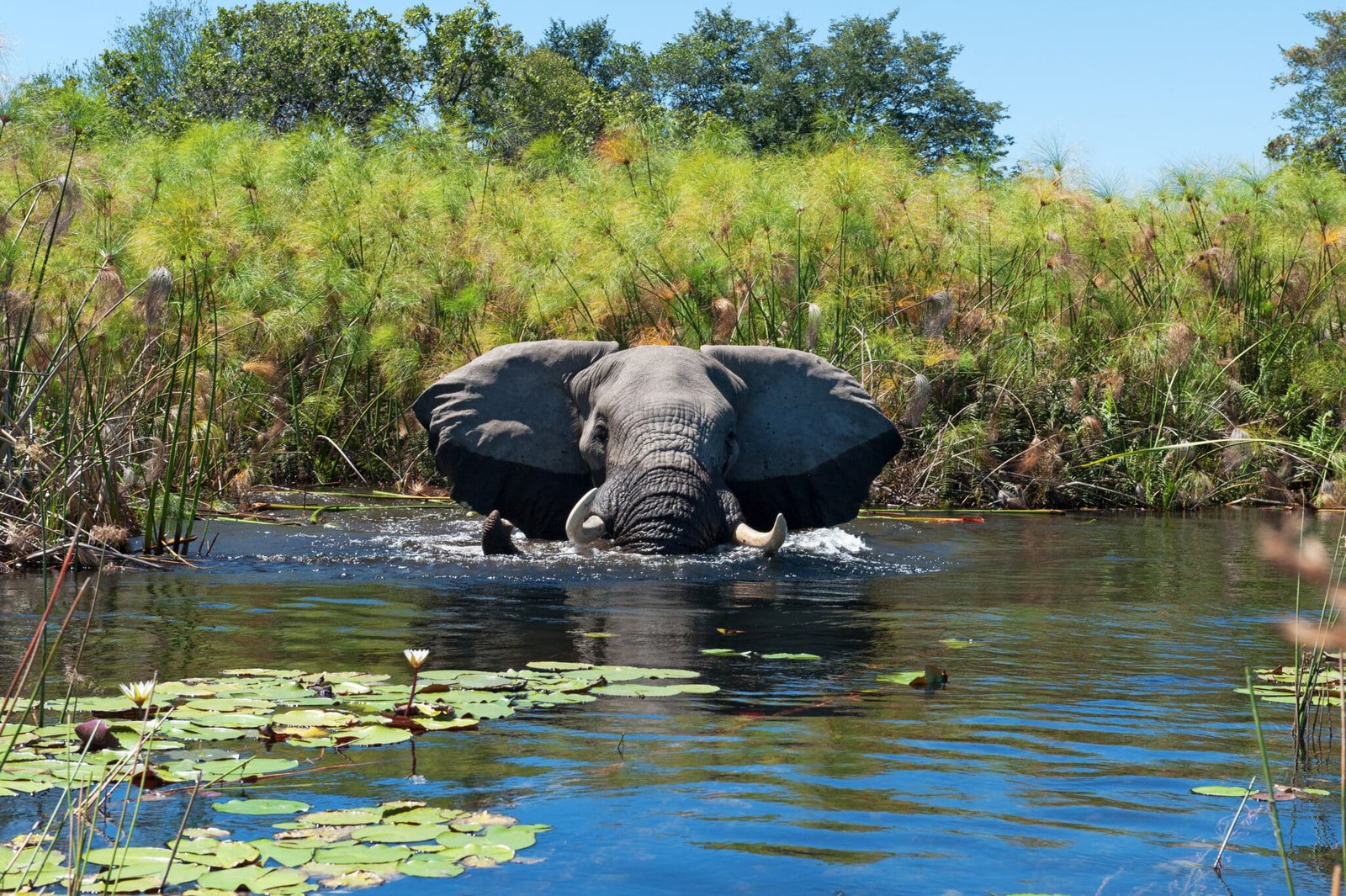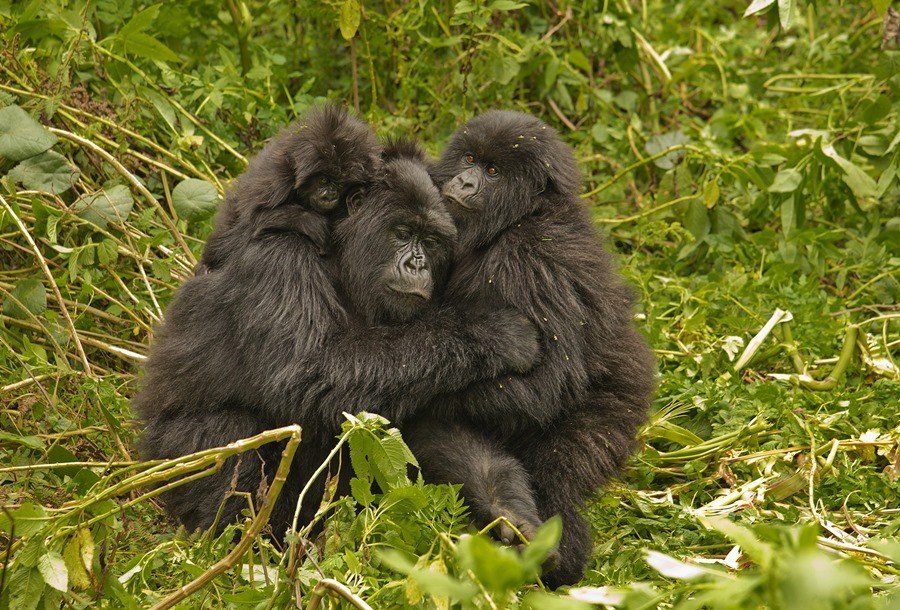Family Safari in Bwindi National Park
Planning a family safari in Africa, particularly in Bwindi Impenetrable National Park, can be an exciting and memorable experience. National Park is located in southwestern Uganda and is renowned for its population of endangered mountain gorillas. Here are some essential details and tips to consider when organizing a family safari in Bwindi National Park:
Gorilla Trekking: Family Safari in Bwindi National Park
Bwindi is best known for its gorilla trekking experiences. Families with children above the age of 15 are generally allowed to participate in gorilla trekking, but it’s essential to check the specific park regulations before planning the trip.Choosing a Tour Operator:
To ensure a smooth and well-organized safari, it’s advisable to book a tour package with a reputable tour operator like Jewel Safaris. Look for operators that offer family-friendly itineraries, experienced guides, and appropriate accommodation options.Accommodation: Family Safari in Bwindi National Park
When it comes to accommodation in and around Bwindi Impenetrable National Park, there are various options to suit different preferences and budgets. Keep in mind that the available accommodations can vary in terms of comfort, amenities, and proximity to the park’s different sectors where gorilla trekking takes place. Here are some common types of accommodations you can consider for your family safari:- Safari Lodges: There are several luxury safari lodges located near the park, offering comfortable rooms or cottages with in-suite bathrooms, often with stunning views of the surrounding natural beauty. These lodges typically provide excellent facilities and services, including on-site dining, spa treatments, and guided nature walks.
- Mid-range Lodges: Mid-range lodges are a popular option for families seeking comfortable accommodations without breaking the bank. These lodges provide clean and cozy rooms with essential amenities like in-suite bathrooms, hot showers, and comfortable beds. They often have a restaurant and offer guided tours and activities.
- Budget Lodges/Campsites: For families on a tighter budget, there are also budget lodges and campsites available near Bwindi National Park. These options may offer basic amenities and shared facilities, but they can provide a more authentic and adventurous experience.
- Family Cottages or Villas: Some lodges and camps offer family-specific accommodations, such as cottages or villas that can accommodate larger groups. These options often come with multiple bedrooms, a living area, and private facilities, making them suitable for families traveling together.
- Community Lodges: Opting for community-based lodges not only supports local communities but also offers a chance to engage with local culture and traditions. These lodges are typically built and managed by local communities, providing a unique and enriching experience for families.
Safari Packages:
Research and compare safari packages offered by different tour operators. These packages usually include activities, accommodations, meals, and transportation. Choose one that suits your family’s preferences and budget.Health Precautions:
When planning a family safari to Bwindi Impenetrable National Park or any other destination in Africa, it’s crucial to take health precautions seriously to ensure a safe and enjoyable trip. Here are some health precautions to consider:- Vaccinations: Check with your doctor or a travel health clinic to determine the necessary vaccinations for travel to Uganda. Common vaccinations for Uganda may include those for yellow fever, typhoid, hepatitis A and B, and meningitis.
- Malaria Prevention: Bwindi National Park is in a malaria-endemic region, so it’s essential to take malaria prevention measures. Consult your doctor about appropriate malaria prophylaxis and ensure that everyone in the family consistently takes the prescribed medication.
- Travel Insurance: Purchase comprehensive travel insurance that covers medical emergencies, medical evacuation, trip cancellations, and other unforeseen incidents. Confirm that the policy covers activities like gorilla trekking.
- Drinking Water: Drink only bottled or boiled water to avoid waterborne diseases. It’s best to use bottled water for brushing teeth as well.
- Food Safety: Be cautious about the food you consume. Eat only cooked foods and fruits that you can peel yourself. Avoid eating raw or undercooked meats and unpasteurized dairy products.
- Insect Protection: Pack insect repellent containing DEET and wear long-sleeved clothing and pants during dusk and dawn when mosquitoes are most active. Use mosquito nets provided in accommodations for added protection while sleeping.
- First Aid Kit: Carry a basic first aid kit with items like bandages, antiseptic cream, pain relievers, and any necessary prescription medications.
- Sun Protection: Protect your family from the African sun by using sunscreen with a high SPF, wearing hats and sunglasses, and seeking shade during peak sun hours.
- Medical Conditions: If any family member has pre-existing medical conditions, ensure they have enough medication and information about managing their condition during the trip.
- Gorilla Trekking Precautions: When participating in gorilla trekking, follow the guidelines provided by park rangers to ensure your safety and the well-being of the gorillas. Maintain a safe distance from the gorillas, do not make direct eye contact, and avoid touching them.
- Knowledgeable Guides: Guided safaris are led by knowledgeable guides who have extensive experience and expertise in the local flora, fauna, and ecosystems. They are often familiar with the behaviours and habits of the wildlife in the area, enhancing the safari experience by providing valuable insights and information.
- Enhanced Wildlife Viewing: Guides are skilled at locating and identifying wildlife, making it easier for participants to spot animals that might be difficult to find on their own. They know where to look for specific species, increasing the chances of encountering diverse wildlife.
- Safety and Security: Safety is a significant concern during safaris, especially when encountering wild animals. Guides are trained to prioritize the safety of participants and adhere to park regulations and guidelines. They know how to react appropriately in various situations to ensure the safety of everyone on the safari.
- Interpretation and Education: Guides often provide interpretation and educational sessions during the safari. They share interesting facts about the wildlife, ecosystems, and conservation efforts, fostering a deeper understanding and appreciation of the natural world.
- Accessibility: Guided safaris are accessible to individuals of all ages and levels of experience. Families with children can benefit from the expertise of guides who can tailor the experience to suit the needs and interests of different age groups.
- Tracking and Trekking: In areas like Bwindi National Park, where gorilla trekking is a popular activity, guides play a crucial role in tracking the gorilla groups and ensuring a responsible and respectful encounter with these magnificent creatures.
- Local Insights: Guides often have connections to local communities and can provide insights into the cultural aspects of the region, allowing participants to gain a more holistic experience beyond wildlife encounters.
- Environmental Awareness: Guides emphasize the importance of environmental conservation and sustainable tourism practices. They encourage visitors to minimize their impact on the ecosystem and wildlife.
- Convenience: Guided safaris take care of logistics such as transportation, accommodation, park permits, and activity bookings, making the entire experience more convenient and stress-free for participants.



